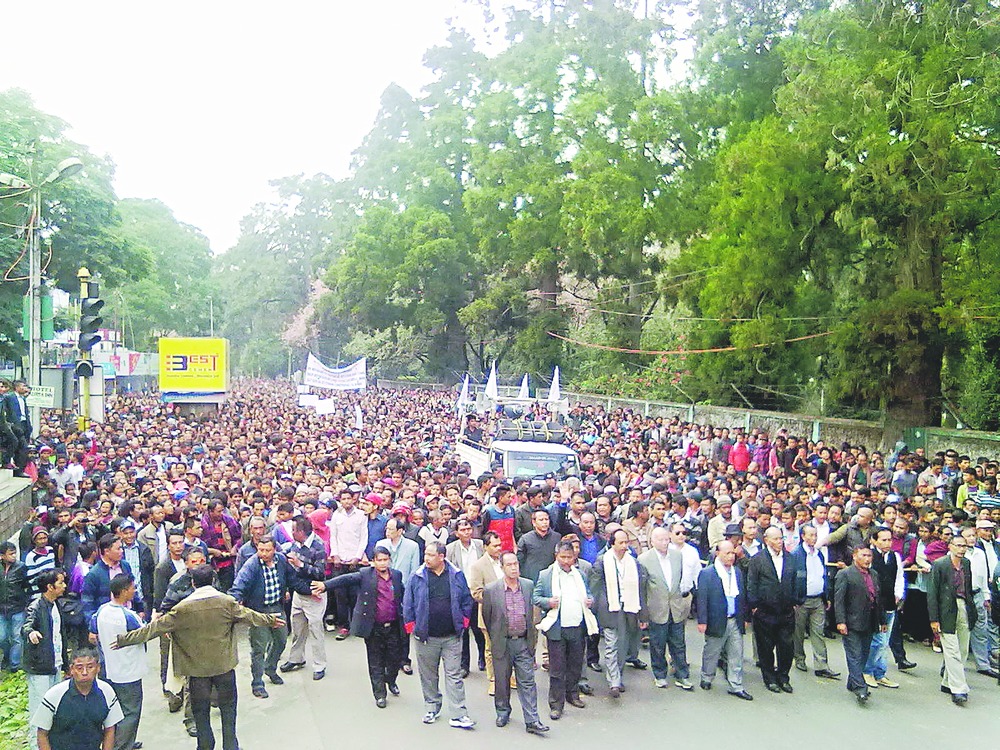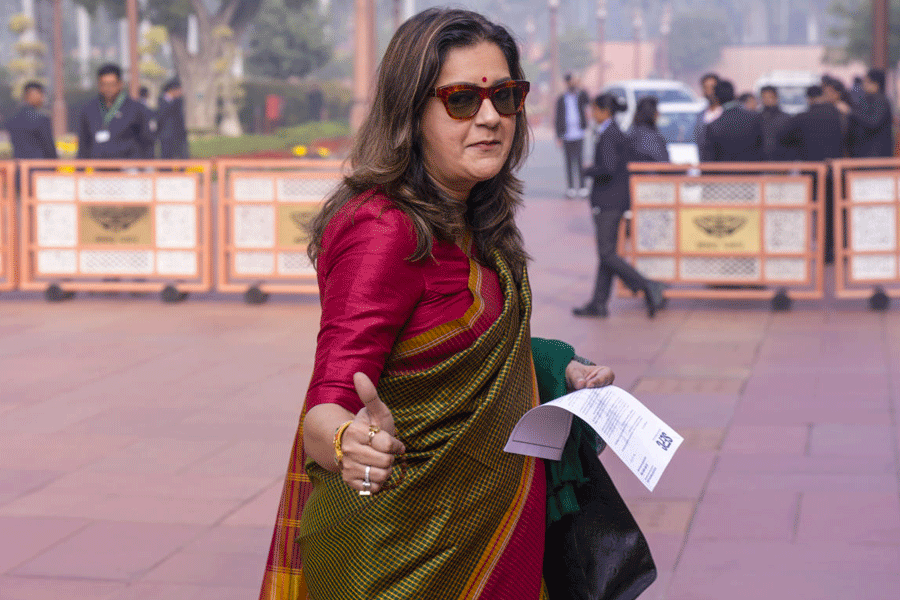
Shillong, Dec. 11: It has been over a year since the Meghalaya High Court "curtailed" the powers of headmen but the issue, which had sparked protests, has been stuck in a legal and political wrangle since then.
Traditional heads had reasoned that the powers of headmen had been a part of the customs and practices of people since time immemorial, but Meghalaya High Court on December 10, 2014 passed a judgment questioning the authority of headmen, citing that "no rule of law has empowered them".
Justice S.R. Sen passed the verdict after adjudicating over a writ petition filed by eight residents of different villages of East Jaintia Hills district who wanted their fundamental rights to be protected. Justice Sen had ruled: "Headmen have no power to issue any kind of certificate unless empowered by the law."
He further said: "Some headmen were drivers, peons or small businessmen and without knowing anything, they try to impose their ideas on others, which is undesirable in this modern world. We also notice that very often local headmen interfere with the work of police as well as with the district administration. Now the question arises, from where did these headmen derive the power to issue no-objection certificates or to interfere with the administration or indulge in removing people from villages?
"The answer is that no rule of law has empowered them to do so. They are doing these activities according to their whims and will. They try to run a parallel government. As a result, common citizens are the worst sufferers, which should not be allowed at any cost."
Justice Sen was of the view that in a state, two parallel governments cannot run simultaneously. "It is the government, district administration and the police who are established by law and no assistance should be sought from any headman," he said.
One of the results of this decision was the fact that the state government found reaching out to villages during various campaigns and awareness drives tough.
The practice of issuing certificates by the headman of any village is to verify the antecedents of an individual and confirm if that person actually resides in a particular village.
An appeal against the December 10 ruling, filed before a high court division bench comprising Chief Justice Uma Nath Singh and Justice T.N.K Singh, is still pending.
The petition was filed by the headmen of three villages - Raitong of Ri Bhoi district, Nonglang of South West Khasi Hills district and Pingwait of East Khasi Hills district.
In the affidavit submitted before the division bench, the headmen stated that the election of a headman was duly approved by the Khasi Hills Autonomous District Council under Section 7 of the United Khasi and Jaintia Hills Autonomous Districts (Appointment and Succession of Chief and Headman) Act, 1959.
The affidavit also said that a headman is the "subordinate officer" of the district council at the grassroots.
While the case is pending in the court, attempts to empower the headmen were unsuccessful during this one-year period, which led to a series of agitations by the people and headmen.
People are also opposing the plan of the state government to come up with a legislation to empower the headmen on the ground that this is the subject matter of the autonomous district councils. The state government had enacted an ordinance to enable the headmen to issue certificates but that ordinance has now expired.
Though two autonomous district councils - Khasi Hills Autonomous District Council (KHADC) and Jaintia Hills Autonomous District Council (JHADC) - had passed two separate bills to empower the headmen, they are yet to get the assent of governor V. Shanmuganathan.
The bill passed by the KHADC is known as the Village Administration Bill, 2015 and the one passed by the JHADC is known as the Establishment of Elaka and Village and Election, Appointment, Powers, Function and Jurisdiction of Dolloi/Sordar and Waheh Shnong Bill, 2015.
Earlier, the governor had referred the bill passed by the KHADC to the Centre.
While waiting for the governor's assent, the KHADC recently also passed the Appointment and Succession of Chiefs and Headmen Rules, 2015, under the Appointment and Succession of Chiefs and Headmen Act, 1959, which empowers the traditional institutions and their heads.
But the Meghalaya government declared the rules published by the council as "invalid".
With the governor yet to come clean on the two bills passed by the two district councils, Raj Bhavan is perhaps keeping everyone guessing about his decision.











